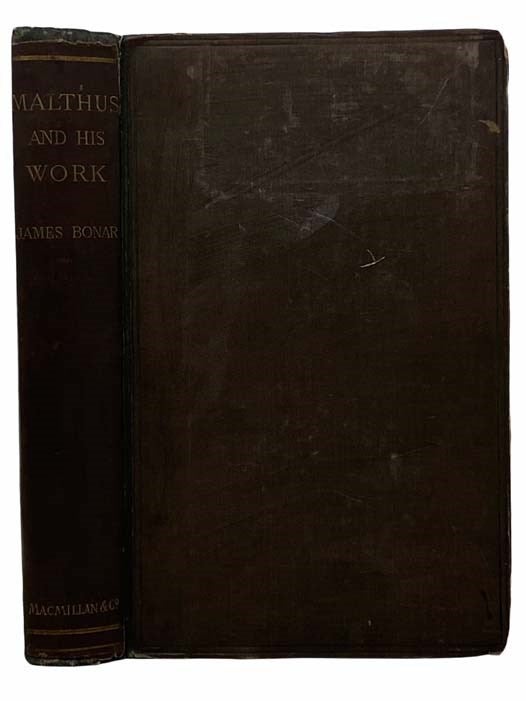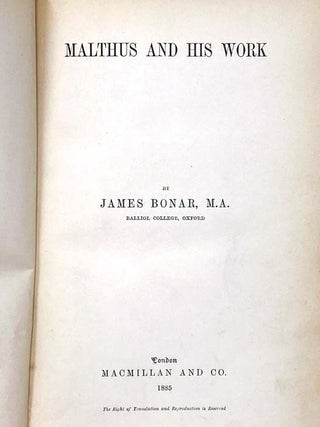Malthus and His Work
London: Macmillan and Co., 1885. Hard Cover. Very Good / No Jacket. Item #2308304
Spine slightly cocked, board corners rubbed and bumped, ink name on front paste-down endpaper.
viii, 432 pp. "Thomas Robert Malthus FRS (13/14 February 1766 – 23 December 1834)[1] was an English cleric, scholar and influential economist in the fields of political economy and demography.[2] In his 1798 book An Essay on the Principle of Population, Malthus observed that an increase in a nation's food production improved the well-being of the populace, but the improvement was temporary because it led to population growth, which in turn restored the original per capita production level. In other words, humans had a propensity to utilize abundance for population growth rather than for maintaining a high standard of living, a view that has become known as the "Malthusian trap" or the "Malthusian spectre". Populations had a tendency to grow until the lower class suffered hardship, want and greater susceptibility to famine and disease, a view that is sometimes referred to as a Malthusian catastrophe. Malthus wrote in opposition to the popular view in 18th-century Europe that saw society as improving and in principle as perfectible.[3] Malthus saw population growth as being inevitable whenever conditions improved, thereby precluding real progress towards a utopian society: "The power of population is indefinitely greater than the power in the earth to produce subsistence for man".[4] As an Anglican cleric, he saw this situation as divinely imposed to teach virtuous behaviour.[5] Malthus wrote that "the increase of population is necessarily limited by the means of subsistence"; "population does invariably increase when the means of subsistence increase"; and "the superior power of population is repressed by moral restraint, vice and misery".[6] Malthus criticized the Poor Laws for leading to inflation rather than improving the well-being of the poor.[7] He supported taxes on grain imports (the Corn Laws).[8] His views became influential and controversial across economic, political, social and scientific thought. Pioneers of evolutionary biology read him, notably Charles Darwin and Alfred Russel Wallace.[9][10] Malthus' failure to predict the industrial revolution was a frequent criticism of his theories. [11] Malthus laid the "...theoretical foundation of the conventional wisdom that has dominated the debate, both scientifically and ideologically [12], on global hunger and famines for almost two centuries [13]." He remains a much-debated writer."--Wikipedia
Price: $50.00


